Welcome to Tony World, Kier Starmers Fantasy "Fusbol" league of technocratic top trumps
Blair i6 , "who ate all the pieties"
Steve Baker says it all here. Ed Balls and George osbourne represent the professional political neo liberal WEF establishment.
Some Of Steve Bakers points are covered in the rest of this post but herenis a very important clip of Steve introducing a monetary reform debate to Parliament, Douglas Carswell had a bill before this that was killed due to the dark arts of sidelining inconvienient matters available to the remembrancers henchmen.
Both Neil Kinnock and Sadiq khan were odious on the bbc election coverage. As was Mandelson. Its all rather interesting to see the team who perpetrated the illegal war in Iraq , inserting arch spook lawyer starmer into no10. I am scenting a bring the country together to send its people to war vibe . Post most elections regular hostilities continue behind the scenes this one I think is far too gracious and magnanimous. Changed Labour is Blair mark 4, Call me Dave was heir to Blair, Rishi was brown blair and now Kier Starmer Blair I6.
Its odd , lots to ponder. And Yet let’s all hope for the best.
As Ai Will be ruling the roost Technocrats want AI not the messy business of Democracy and listening to what people really say.
The”Prose generated from the Video to text transcript on the You Tube links that follow are all Monica from Chat GPT. I have not bothered to edit Monicas Mistakes either spelling names or indeed interpretation. The Views Expressed are there fore not those of any human but will reflect the choices made by the programmers who trained Monicas Algorithms. ( Welcome to “ I am sorry I can’t do that , Hal world”.
Prince of Darkness Peter Mandelson on election night starts at 2.01 hrs
As the election results continue to unfold, the political landscape of the United Kingdom is undergoing a significant transformation. The recent developments have brought about a wave of change, with implications that are both far-reaching and profound.
One of the most notable outcomes of the election is the resurgence of the Labour Party in various regions across the country. With gains in Scotland, Wales, and even traditional Conservative strongholds, Labour has demonstrated a remarkable resurgence, positioning itself as a formidable force in British politics once again.
The shift in voter sentiment has been particularly evident in areas such as Swindon South, where former Labour MP Heidi Alexander secured a resounding victory. Her impassioned speech reflected a deep sense of commitment to her constituents, promising to restore pride and opportunity to her hometown. The magnitude of her win, coupled with a substantial swing in Labour's favor, underscores the seismic shift taking place within the political landscape.
Conversely, the Conservative Party has faced significant setbacks, with former cabinet minister Sir Robert Buckland acknowledging the challenges ahead. His poignant remarks alluded to the need for introspection within the party, emphasizing the importance of valuing collaboration and integrity in politics. The implications of these statements signal a critical juncture for the Conservative Party, as it grapples with the aftermath of a potentially shattering defeat.
Furthermore, the election results have also brought to light the evolving dynamics in Scotland and Northern Ireland. The Scottish National Party (SNP) and Sinn Féin have made significant strides, while the Democratic Unionist Party (DUP) faces a precarious position. The potential realignment of political representation in these regions has far-reaching implications for the future of devolved governance and national unity.
Amidst these developments, it is clear that the electorate's voice has resonated with a resounding call for change. The emergence of new political dynamics and the resurgence of traditional parties underscore a shifting paradigm in British politics. As the dust settles on this historic election, it is imperative for all political stakeholders to heed the mandate of the people and work towards a future that reflects the aspirations and concerns of citizens across the United Kingdom.
The coming days and weeks are poised to be pivotal as the newly elected representatives embark on their respective mandates. The task ahead involves navigating complex challenges, fostering unity, and delivering on the promises made to constituents. It is a time for reflection, resilience, and above all, a renewed commitment to serving the public interest.
As we witness these transformative developments unfold, it is essential to embrace the spirit of democratic engagement and collective responsibility. The outcome of this election marks a defining moment in the annals of British political history, signaling a new chapter characterized by change, resilience, and an unwavering commitment to shaping a better future for all.
In conclusion, the reverberations of this election will undoubtedly shape the course of British politics for years to come. The mandate for change is resounding, and it is incumbent upon all political actors to rise to the occasion and honor the trust placed in them by the electorate. As we navigate this period of transition and transformation, let us uphold the values of democracy, integrity, and inclusivity as we collectively chart a path forward for our nation.
Sadiq Khan was on the election night coverage, he was appalling. God help us.
This is what Technocracy Looks Like!
Khan full Appearance 2.28-2.38
As the election night progresses, it is evident that the Labour Party is experiencing a surge in support across various regions of the country. The speeches by Robert and Hardy have been commended for their clarity and conviction, setting the stage for what could be a momentous night for K St's at Labour. It is remarkable to witness the potential gains Labour is making, potentially becoming the largest party in England, Scotland, and Wales.
Reflecting on the journey, it is noteworthy to acknowledge the pivotal role played by individuals such as Hardy, who joined as the deputy mayor for transport four and a half years ago. The transformation from a party on the brink of extinction to one on the cusp of power is unprecedented and a testament to the hard work and dedication of the Labour team.
The prospect of such a significant turnaround within the span of one parliamentary term seemed inconceivable just a few years ago. The belief and conviction demonstrated by K St as a leader have been instrumental in driving this progress. His unwavering commitment to public service and his tireless efforts in building a strong team have been pivotal in this journey.
As the election results continue to unfold, it is essential to recognize the tireless efforts of all Labour members, volunteers, and supporters who have contributed to this potential success. The gains being witnessed are a result of collective hard work and dedication.
The significance of these potential gains for Labour cannot be overstated. It is a moment that underscores the resilience and determination of the party. However, amidst the excitement, it is crucial to maintain humility and focus on the responsibilities that lie ahead. The prospect of forming a government brings with it immense challenges and expectations.
Looking ahead, if the exit poll results materialize, it will mark a significant transition for K St and the Labour Party. The magnitude of this potential victory will require a mature and responsible approach to governance. It will be imperative to bridge divides and work towards unifying the nation under a common vision.
As we await the final results, it is essential to remain mindful of the weight of responsibility that comes with governing. The challenges ahead are substantial, and it will require astute leadership and unwavering dedication to serve the interests of the nation.
In conclusion, regardless of the final outcome, the journey of Labour in this election has been remarkable. The potential for significant gains is a testament to the resilience, perseverance, and unity within the party. As we brace ourselves for what lies ahead, it is crucial to approach this moment with humility, determination, and a steadfast commitment to public service.
The developments of this election night have set the stage for a new chapter in British politics, one that will undoubtedly shape the future of the nation.
Mandelson part 2 3.13-3.20
In a recent discussion with Deen Davidson, former conservative MP, and Lord Melson Deah, the topic of the historic crash for the conservative party in the latest election was thoroughly examined. Davidson attributed the party's defeat to a range of reasons, including their 14-year tenure in power, which naturally led to mistakes and a cycle of discontent among the public.
One of the key mistakes, as pointed out by Davidson, was the party's complacency and internal division, leading to a lack of unity in presenting a conservative front. He acknowledged that the infighting and public airing of internal conflicts had contributed to the scale of their defeat. This introspective analysis also extended to recognizing individual responsibility for the current state of affairs.
The conversation delved into the broader impact of conservative policies, particularly in relation to austerity measures implemented in previous years. The discussion highlighted the potential consequences of long-term borrowing and the need for responsible fiscal decisions. The impact of cuts in capital spending and infrastructure investment during the austerity years was also scrutinized, with concerns raised about the weakened state of the country's core infrastructure.
The debate further explored the balancing act between tax cuts and public service provision, emphasizing the need for sustainable economic growth to support essential services such as healthcare. The contrasting growth rates under different administrations were also brought into focus, with implications for the overall economic performance.
The dialogue underscored the complexity of economic policy decisions and their far-reaching implications for the country's future. It raised pertinent questions about the trade-offs between fiscal responsibility, public service provision, and long-term economic sustainability.
As the conversation concluded, it became evident that the quest for sustainable economic growth and prudent fiscal management would continue to be a central theme in political discourse. The challenges of navigating economic policy in a rapidly changing global landscape were acknowledged, with differing perspectives on the best path forward.
The exchange between Davidson and Lord Melson Deah provided valuable insights into the multifaceted nature of economic policy and its profound impact on governance and society. It underscored the need for thoughtful consideration of both short-term measures and long-term consequences in shaping economic policies.
In conclusion, the discussion shed light on the complexities and challenges inherent in economic policymaking, emphasizing the need for a balanced approach that prioritizes sustainable growth, fiscal responsibility, and the well-being of the populace. As political dynamics continue to evolve, these considerations will remain pivotal in shaping the future trajectory of the nation's economy.
Niel Kinnocks Appearance on Election Night stats at 31.09
As we witness the unfolding of the UK parliamentary election, the atmosphere is charged with anticipation and analysis. The results pouring in from various constituencies are shaping the political landscape, and every declaration brings with it a wave of implications.
One cannot help but empathize with the emotions of individuals deeply invested in these results. Neil Kinnock, for instance, must be experiencing a myriad of thoughts and feelings as he observes the outcome. The ebb and flow of support for political parties in different regions is a testament to the dynamic nature of democracy.
However, amidst the fervor of the election, it is crucial to address the intricacies of the shifting support for political parties. The decline in labor support in Wales by five points, as revealed by our number crunchers, warrants examination. Kenck's insights shed light on the organized campaign against certain policies of the Welsh labor government, as well as the impact of recent controversies involving the First Minister. Additionally, the emergence of alternative political movements offering simplistic solutions to complex issues poses a challenge to traditional party dynamics.
As we delve into specific constituencies, the significance of each victory and defeat becomes apparent. The loss of George Galloway, a prominent figure in British politics, to the Labour Party candidate, Paul Wall, marks a pivotal moment. Kinnock's candid expression of disdain for Galloway underscores the personal and political dimensions at play in these electoral battles.
The declaration of the first seat in Scotland, with Labour securing a majority over the Scottish National Party, amplifies the intricate interplay of regional dynamics within the broader political landscape. This development not only holds significance for Labour's resurgence but also reflects the evolving sentiments and aspirations of Scottish voters.
Amidst these unfolding events, the visible tension and apprehension on the faces of politicians such as Richard Holden, chairman of the Conservative Party, serve as a poignant reminder of the high stakes involved. The possibility of unexpected outcomes and upsets underscores the volatile nature of electoral politics.
As we continue to track the unfolding results and their implications, it is essential to maintain a nuanced understanding of the complex factors at play. The interplay of regional dynamics, party strategies, and voter sentiments underscores the multifaceted nature of democratic processes.
In conclusion, the ongoing UK parliamentary election presents a tapestry of evolving political narratives, regional dynamics, and individual aspirations. The outcomes witnessed thus far serve as a testament to the vibrancy and unpredictability inherent in democratic exercises. As we await further declarations and analyze the broader implications, it is imperative to approach this juncture with a discerning eye and an appreciation for the intricate interplay of political forces.
Welcome to Keir Starmer’s post-liberal orderWe are all living in Tony Blair's world
'A loyal Skywalker to Blair’s Obi-Wan.' Chris J. Ratcliffe/Bloomberg/Getty Images
KEIR STARMERONE NATION TORIESPOLITICSPOST-LIBERALISMUK
Mary Harrington
JULY 6, 2024 10 MINS
So now Keir Starmer is Prime Minister, what will change? There are two apparently contradictory responses to this.
The first: nothing. The truly shattering revelation from the era since Brexit has been that you can experience a so-called “political earthquake”, followed by years of ululation and hand-wringing, and after it all dies down, the same spreadsheets-and-chinos people will go on pushing more or less the same policies as before, and ignoring more or less the same structural issues and popular preferences. It is the post-democratic and transnational new normal. We might call it “actually existing post-liberalism”. The election of Starmer will simply entrench it further.
j watson
52 minutes ago
Reply to Brendan O'Leary
The issue BOL is not that some inequality isn’t useful – it is – but that it’s growth and increasing gap at a time when trickle down is not working either begs much more fundamental questions about how an economy actually works. You’ll have noticed asset prices rising much faster than growth rates. Ask yourself more often why that is, who benefits and what we can do about it? And we’re not talking here about the middle class home that’s worth more. We are talking about the real holders of huge assets.
00:02 Who's really going to be the next PM? 00:47 Nick Hubble's track record: What predictions came true? 02:27 The Fleet Street Letter: A history of breaking uncomfortable truths to the public 04:11 The 2024 election: Is there a surprise in store? 05:07 Who is the "shadow prime minister"? 05:58 How does the Bank of England pull the strings? 07:57 Central bank control: A global phenomenon? 10:50 The "invisible tax": What's the Bank of England's secret plan? 13:30 Italy 2018: A cautionary tale 15:31 From Greece to the US: More examples of central bank influence 16:52 High inflation, low interest rates: What's coming next? 19:05 Multiple inflation surges: What to expect over the next 14 years 20:37 Why isn't this in the news? The importance of secrecy 21:47 Four crucial reports: What do they reveal? 23:56 Inside the reports: Key insights for investors 25:11 Meet the Fleet Street Letter team: Who's behind the analysis? 30:35 Are you prepared for what's coming?
Now on the Bank of England Tail wagging the Democratic Dog and Starmer’s “ Great reset” by stealth, the potential for such a silly move in ignoring the nature of the Real Mandate given to the House of Commons and not to Sir Kier personally, he says “ put Country before Party”. The problem lies in Putting Parliamentary sovereignty and the Constitution before Part and The City I’m afraid. Sir Kier’s feet need to be held to the Fire on this point!
On The Bond Market holding sway over the nominally executive legislative chamber this report from Southbank research and the — FLEET STREET LETTER SPECIAL REPORT
"By a bait and switch, central bankers are now the ones who can “intimidate everybody,” as Carville put it. If he is reincarnated as the bond market, he would be bitterly disappointed to discover these technocrats are now in charge. They can decide to support governments like Mario Draghi’s in Italy by buying Italian government debt. Or they can undermine governments like Liz Truss’ by failing to buy government debt. Or they can force policies on governments by threatening to sell government debt if they don’t. It’s not always that blatant. Central banks can influence negotiations about government policy by massaging bond yields up and down depending on how acquiescent the government is being to central bankers’ “advice”. It’s entirely up to central banks. There is no accountability, public awareness or consequences.Nobody blames them. Well, anyone trying to warn you about all this is discredited and then fired, like Liz Truss and Yanis Varoufakis."
QED Post Climate Change, Land Use and Monetary Policy, The New Trifecta.
#CarbonCurrencyEndGame #1930's the sequel non crime thought crime and the non nazi nazi nazis.
QED Post Climate Change, Land Use and Monetary Policy, The New Trifecta.
Doubling Back I often find it somewhat more productive than doubling down. Doubling Down is a form of denial and Doubling Back is a retracing of steps to find where one took a misstep. Whilst the end of the World is not nigh, the end of the current monetary arrangements is nigh, and also the old social contract is up in flames and withering away as I type…
Rates Were Raised too far too Fast
The rapid increase in interest rates followed by a prolonged high rate environment has raised concerns and prompted questions about the underlying reasons. The narrative surrounding the second phase of Blackrock's Going Direct initiative, the abrupt switch in leadership, and the subsequent reactions have fueled skepticism and speculation. The potential …
00:00 Introduction 00:40 What Actually Happened? 02:45 Why Is Nobody Lowering Taxes? 04:16 The Forces at Work in Government 06:26 Do We Really Have a Democracy? 13:50 Being in a Strait Jacket as PM 15:43 Why Should Anybody Vote? 19:42 Sponsor Message: Cozy Earth 20:58 The Things That Need Reform 23:09 Failure of the Tories After 14 Years 31:22 Walking Into 10 Downing Street as PM 35:31 How Close Were We to a 2008 Repeat? 39:19 Sponsor Message: Monetary Metals 40:54 Should Liz Have Stood by Kwasi Kwarteng? 48:13 What Liz Would Change If She Could Go Back 51:08 Does the UK Want a Big State? 53:07 The Future of the Conservatives 59:20 What’s the One Thing We’re Not Talking About?
In the current political landscape, the question of whether we truly have a functioning democracy is a pertinent one. The very essence of democracy lies in the ability of elected leaders to enact policies that reflect the will of the people. However, when these policies are thwarted by unseen forces, it raises serious doubts about the democratic process.
The issue at hand is the growing power of unelected bodies in decision-making processes. From the Office of Budget Responsibility to the Bank of England, and even the Environment Agency, decisions are being made by individuals who are not democratically accountable. This poses a significant challenge to the democratic principles that form the foundation of our society.
One might argue that such institutions provide necessary checks and balances against arbitrary decision-making by politicians. However, the reality is that these unelected bodies are increasingly influencing and shaping policies without democratic oversight. As an ordinary citizen, it is disconcerting to realize that many crucial decisions affecting our lives are being made by individuals we did not elect.
Furthermore, the issue is compounded by the prolonged tenure of certain political parties in power. It raises the question of why these elected officials have not taken steps to address this erosion of democratic principles. As a former junior Minister, I can attest to the challenges faced in trying to enact policies within the existing system. The bureaucratic hurdles and vested interests often lead to dilution or outright rejection of well-intentioned policies.
For instance, during my tenure in the education department, I sought to deregulate childcare to make it more affordable. However, the process was marred by endless delays and compromises forced upon me by various interest groups. This pattern of obstruction and dilution is not unique to one policy area but permeates across different sectors, making it exceedingly difficult to effect meaningful change.
Moreover, the fear of legal repercussions and judicial review further exacerbates the situation. Civil servants are understandably cautious about making decisions that could potentially lead to legal challenges, thereby hindering the progress of positive policy initiatives.
In essence, the current system resembles a straightjacket, constraining the ability of elected officials to fulfill their mandate and deliver on their promises to the electorate. It is imperative that we address this issue and recalibrate the balance of power to ensure that democratic principles are upheld.
As we navigate these challenges, it is essential to engage in meaningful dialogue and enact reforms that restore accountability and transparency in decision-making processes. Only then can we truly claim to have a democracy that reflects the will of the people and operates in their best interests.
At the snake eating its own Tail Phase. #PEAKEVERYTHING #CarbonCurrencyEndgame #ConquestofDough #FinancialEyes #Aadhaar @financialeyes @PerKurowski @SwiftysDucks @fiatisdying1 @AKkiff262 @wesfree @sci
Title: The Current State of Economic Affairs: A Critical Analysis As of March 13 2023. Preparation for a post on Monday analysing the current Stage of the Going Direct plan to Move to a Public-Private partnership command and control economy, and how The Free Market can fight back
The Special relationship extends to the plagarism of Technocratic Spin. Oh Right.
July 17, 2016
WHO ATE ALL THE PIETIES.OR ´NOW IS NOT A TIME FOR SOUNDBITES´
WHO ATE ALL THE PIETIES OR ´NOW IS NOT A TIME FOR SOUNDBITES´.
´´Now is not a time for Soundbites , spin doctored crocodile tears, never better demonstrated than by One Anthony Charles Lynton Blair.
”It’s not a day for soundbites really erm we can leave those at home , I feel the hand of history upon our shoulder.in respect of this, I really do.”
So this is the second sense the Who ate all the pieties sense. piety ˈpʌɪəti/Submit noun the quality of being religious or reverent. “acts of piety and charity” synonyms: devoutness, devotion, piousness, religiousness, religion, holiness, godliness, sanctity, sanctitude, saintliness, devotion to God, veneration, reverence, faith, religious duty, spirituality, sacredness, religious zeal, fervour, pietism, religiosity “the piety of a saint”
Get our free View from Westminster email
SIGN UP
I would like to be emailed about offers, events and updates from The Independent. Read our privacy policy
Good Morning Britain presenter Ed Balls was involved in a heated exchange when a guest referred to him as “Mr Cooper”.
Journalist Quentin Letts said he found it “tricky” discussing the Rwanda bill as Mr Balls is married to Yvette Cooper, the shadow home secretary.
The former Chancellor blasted the comment as “patronising”, adding that he wasn’t trying to debate him but ask him a question.
Mr Letts said: “It’s a bit tricky discussing this with Ed presenting the programme, given that his wife is the Shadow Home Secretary, but...” interrupting him, the GMB presenter asked him why he thought answering the question was tricky.
ADVERTISING
Mr Balls continued to speak about the controversial Rwanda scheme and asked another question before the Daily Mail journalist called him “Mr Cooper”.
RECOMMENDED
Who is Keir Starmer’s wife Victoria? As her neighbour, this is what I know...
Nigella Lawson leads celebrity reactions to general election results
Explore attractive offers on the Volvo XC40 mild hybridVolvo Cars|
Millions Of People Could Be Owed This Car Finance RefundCar Finance Refunds|
Mr Balls replied: “Why do you keep saying that? Isn’t that a really patronising thing? You are making a big thing of it, you’ve made remarks twice.
Promoted stories
Millions Are Owed This Refund Worth Up To £5,318.25THEPCPEXPERTS.CO.UK
“It’s really patronising to me, of course it is, the idea that I can’t ask you questions on this television programme because I’m married to somebody who has a role in politics.
“In my experience, people who make those kinds of taunts are people who find it hard to answer the questions, why don’t you answer the question and stop playing silly politics?”
Mr Letts insisted he was trying to answer the question, before adding: “I was trying to say to you I think the Tories will not get a benefit from this, but you wouldn’t let me.”
https://www.telegraph.co.uk/politics/2024/07/06/key-blairite-called-in-to-drive-through-nhs-reform/
Starmer turns to key Blair ally to drive through NHS reform
Alan Milburn, known for his closeness to Sir Tony, supports a greater private sector role in the health service.


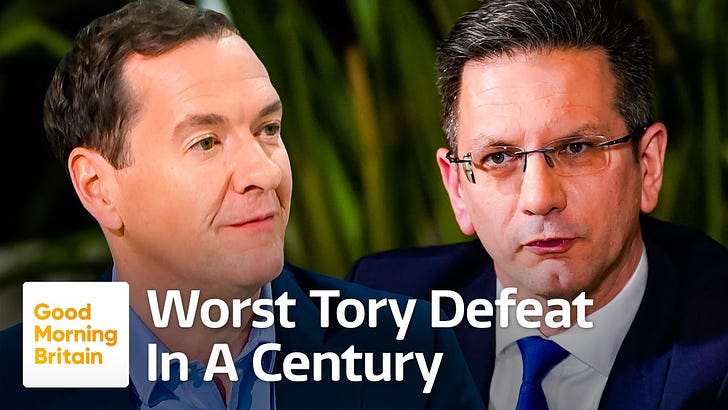



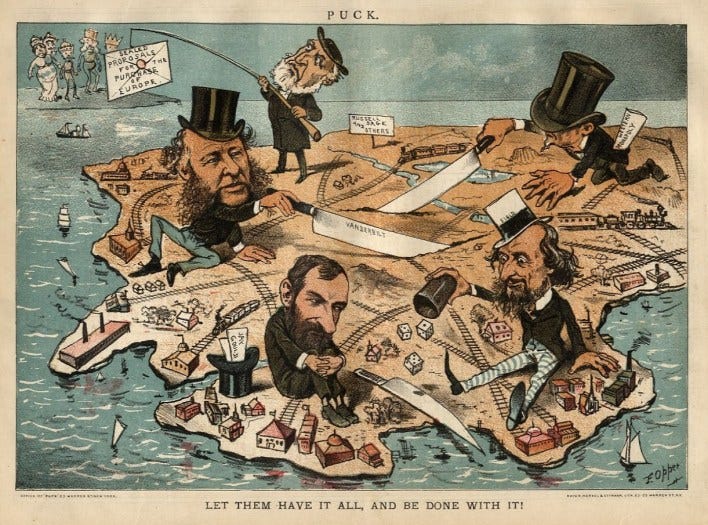
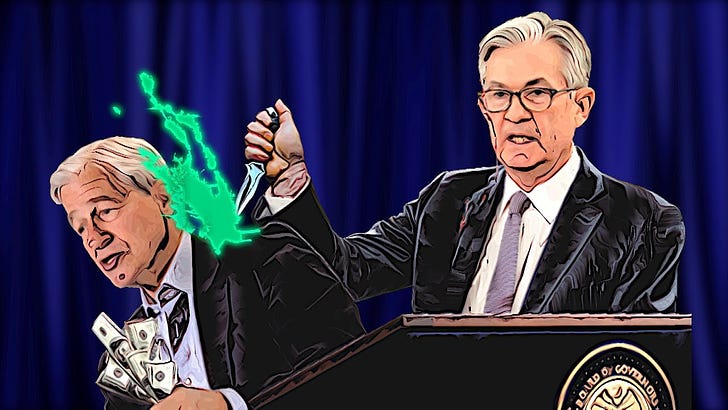
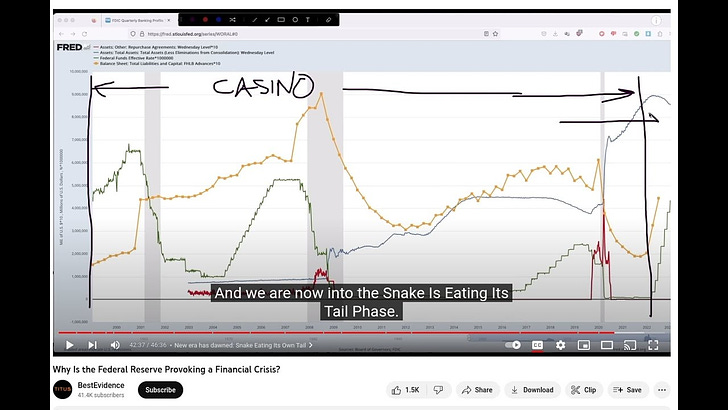
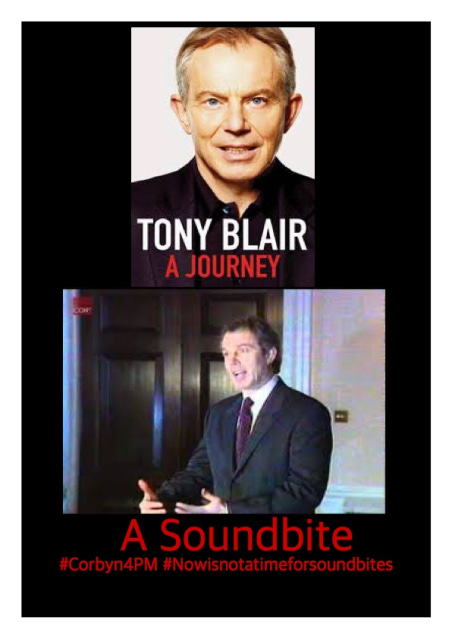
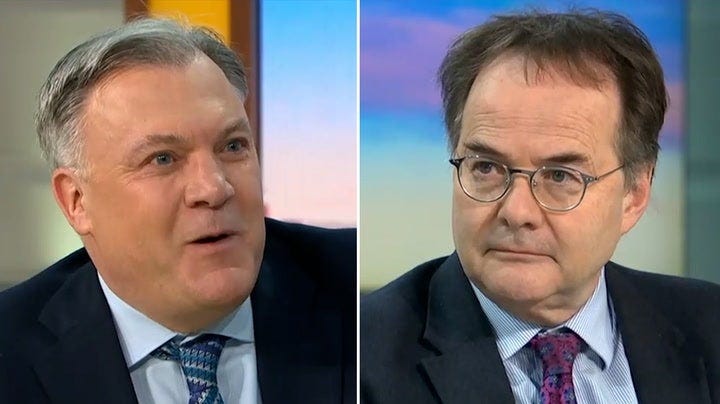
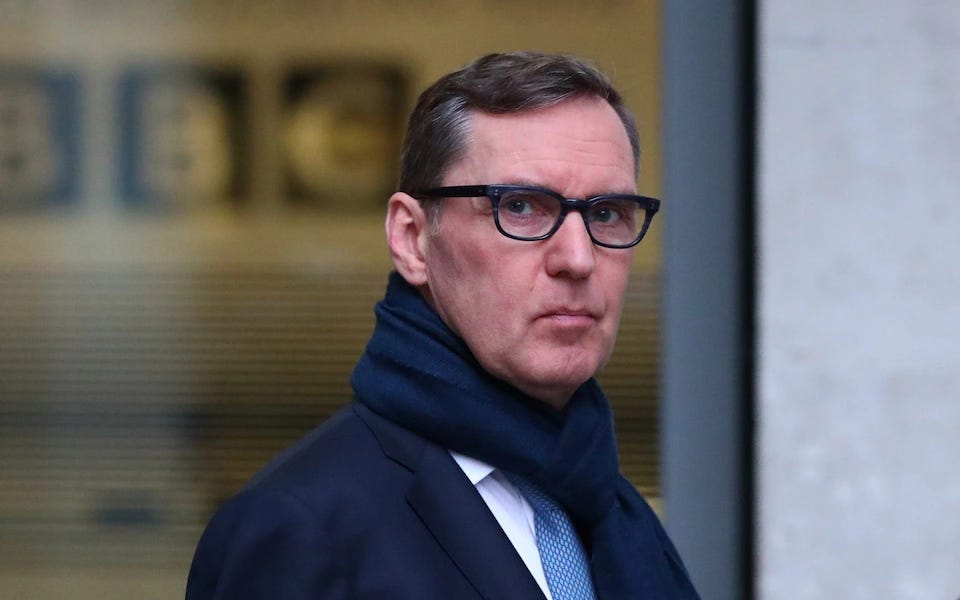
Great commentary - much appreciated. I am very glad we are in touch.